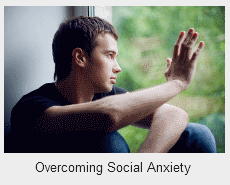What Causes Anxiety?
What Causes Anxiety Disorders?
There are many factors and reasons as to what causes anxiety. We all know stress plays a major role and that panic and anxiety attacks occur during different stressful situations.
Anxiety is a general term that covers several mental disorders. Stress and worry, nervousness and fear are all interrelated.
Not only do these factors affect us emotionally, but they can also affect a person physically and these symptoms are very real.
I have discussed in previous articles how it affects everyone at different times, such as with school exams, meeting new people socially or having to perform in front of people.
What causes anxiety for those who suffer with this disorder all the time?
A publication written by the Australian Department of Health and Aging states that:
The causes of a particular disorder vary, and it is not always easy to determine a cause in every case.
Genetic factors
It is well established that the tendency to develop anxiety disorders runs in families. This is similar to a predisposition to other illnesses, such as diabetes and heart disease.People may also learn anxious responses from parents or other family members.
Biochemical factors
Some anxiety disorders may be related, in part, to a chemical imbalance in the brain. The neurotransmitter that regulates feelings and physical reactions may be involved.Temperament
People with certain temperaments are more prone to anxiety disorders.People who are easily aroused and upset, and are very sensitive and emotional, are more likely to develop anxiety disorders.
People who as children were inhibited and shy may be prone to develop certain anxiety disorders, such as social phobia. Read More
Natural Therapy Pages also agree as to what causes anxiety, as to possible genetic factors being involved.
Fear can be triggered by external objects or situations. Our reaction to fear manifests in anxiety, an internal vague feelings that “something bad is going to happen”. Our internal, negative self-talk supports our feelings that the “worst is going to happen”.
Environmental factors that can cause anxiety include trauma, such as abuse, death of loved ones, money worries, personal relationship issues and stressors from your daily personal and professional life.
Anxiety can occur in people experiencing a medical crisis, such as a chronic or long-term illness. As the person experiences the trauma of the illness, he or she starts imagining the pain or trauma will continue or become worse.
Genetics factors can cause anxiety. Studies show that a family history of anxiety increases the chance that a person will also develop anxiety.
Anxiety can also occur with mental health problems. The problem becomes worse when substances are used to hide the underlying pain of anxiety. When the pain of anxiety heightens, a person could experience depression or can lead to self-medication with alcohol and drugs.
Whatever the reasons as to what causes anxiety, whether it be your own issues or your friends or family, they are ‘real’ issues. I certainly have my own…do you? Let me know in the comments below and if you feel this article could be of benefit to others, please click to share.
|
Receive a Free Report! Simply enter your name and email address below to receive your special free report and blog updates. Subscribe Today For 'Stop Panic and Anxiety Attacks' |
What Is Munchausen Syndrome?
Do You Know Anyone With Munchausen Syndrome?
Have you heard of this mental health disorder? If you haven’t you have possibly heard of people doing this certain behavior and wondered why they do it. Unfortunately people suffering with Munchausen Syndrome need treatment and not the treatment they are trying to get.

Munchausen Syndrome
WebMD explain the symptoms below:
What Are the Symptoms of Munchausen Syndrome?
People with Munchausen syndrome deliberately produce or exaggerate symptoms in several ways. They may lie about or fake symptoms, hurt themselves to bring on symptoms, or alter tests (such as contaminating a urine sample). Possible warning signs of Munchausen syndrome include:
- Dramatic but inconsistent medical history
- Unclear symptoms that are not controllable and that become more severe or change once treatment has begun
- Predictable relapses following improvement in the condition
- Extensive knowledge of hospitals and/or medical terminology, as well as the textbook descriptions of illnesses
- Presence of multiple surgical scars
- Appearance of new or additional symptoms following negative test results
- Presence of symptoms only when the patient is with others or being observed
- Willingness or eagerness to have medical tests, operations, or other procedures
- History of seeking treatment at numerous hospitals, clinics, and doctors offices, possibly even in different cities
- Reluctance by the patient to allow doctors to meet with or talk to family, friends, or prior doctors
- Problems with identity and self-esteem.
You can read more about this article here: http://www.webmd.com/mental-health/munchausen-syndrome
I also found this video you may find very interesting.
Munchausen Syndrome Video
Maybe you do know of someone with this disorder. If you do please leave your comments below. It is a problem that is not talked about as much as other disorders, such as anxiety and depression, but it exists nonetheless.
If you liked this article please let me know by leaving your feedback and comments!
|
Receive a Free Report! Simply enter your name and email address below to receive your special free report and blog updates. Subscribe Today For 'Stop Panic and Anxiety Attacks' |





